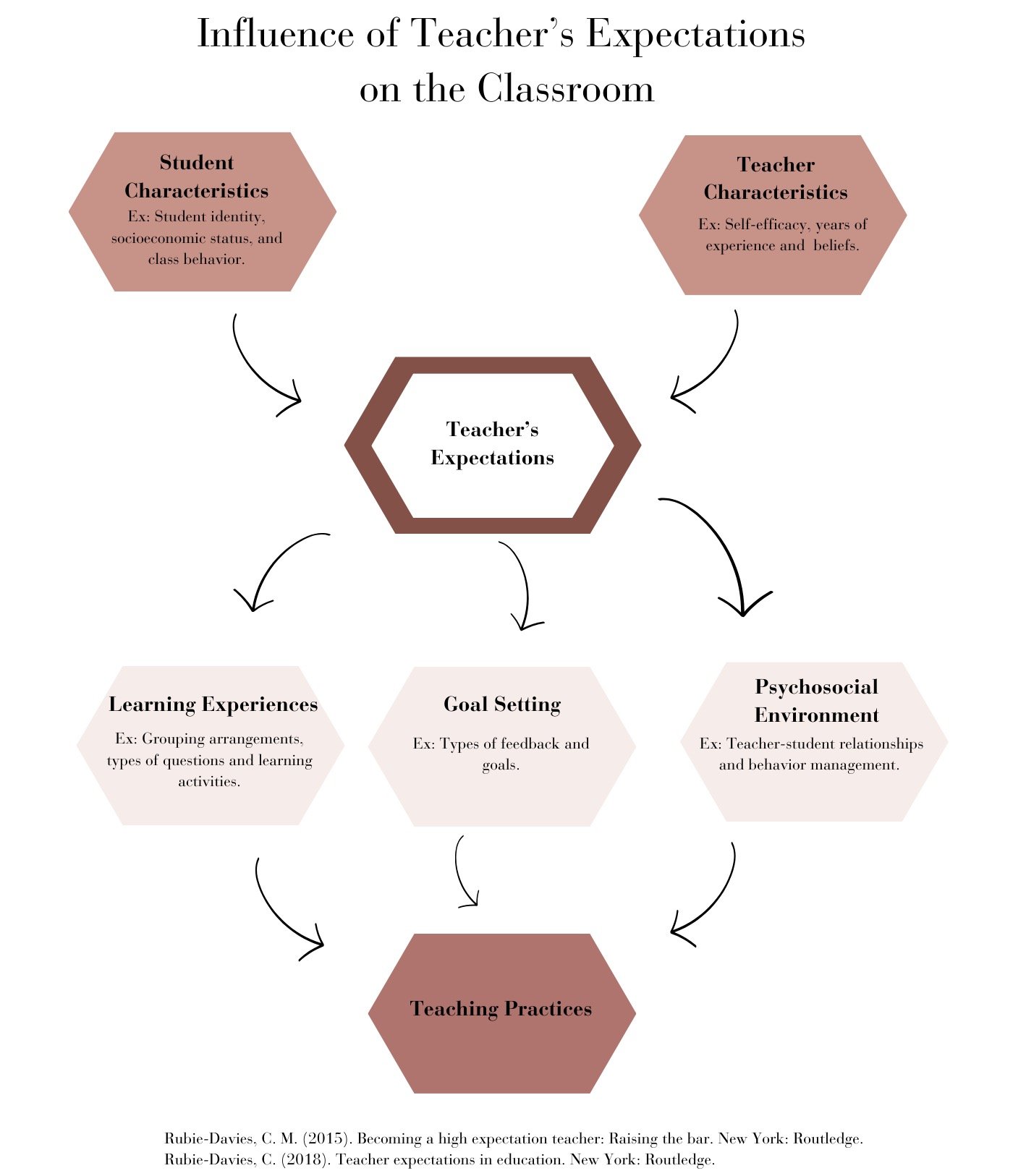
Why Teacher Training?
Avalos (2011) explains “professional development is about teachers learning, learning how to learn, and transforming their knowledge into practice for the benefit of their students’ growth” (p.10). Within this process, the author suggests teachers are both, subject and object of learning and development.
Among the different factors which play a significant role in teachers’ professional development, and their capacity to change, Avalos (2011) highlights the influence of cognitive theory. ****Cognitive theories are “characterized by their focus on the ideas that how and what people think leads to the arousal of emotions and that certain thoughts and beliefs lead to disturbed emotions and behaviors and others lead to healthy emotions and adaptive behavior” (DiGiuseppe et al., 2016, p. 145)
****When considering the practicalities of teachers’ professional development, Avalos (2011) identifies two main areas of impact. In the first place, professional development has an impact on teachers’ cognition, beliefs and practices. Example of these are: curricular knowledge and fostering of student motivation (Avalos, 2011), planning, teaching style and assessment practices (Boyle et al., 2004).
Changes in educator’s practices inherently affect what goes on inside their classroom. And, thus, students are inevitable influenced by the changes in their educators’ practices. Avalos (2011) describes research which has shown an effect on the general improvement of students’ outcomes. This advancement has been shown for specific content areas, such as science (Buczynski & Hansen, 2010) but, also, as a simultaneous general improvement in different areas.
Furthermore, Opfer & Tedder (2010) identified benefits to teachers’ professional development which go beyond the effects mentioned so far. The authors refer to existence of two types of indirect benefits. Indirect benefits to teachers, are those which enhance “a teacher’s status or career prospects, and even salary” (p.414). Indirect benefits to the school are those which increase retention or recruitment. Both of these are also relevant areas of impact which go beyond the effects of teacher training, their practices and its impact on student’s outcomes.
References
Avalos, B. (2011). Teacher professional development in Teaching and Teacher Education over ten years. Teaching and Teacher Education, 27(1), 10–20. doi:10.1016/j.tate.2010.08.007
Boyle, B., D. While, & T. Boyle. (2004). A longitudinal study of teacher change: What makes professional development effective? The Curriculum Journal 15(1), 45–68.
Buczynski, S., & Hansen, C. B. (2010). Impact of professional development on teacher practice: Uncovering connections. Teaching and Teacher Education, 26(3), 599–607. doi:10.1016/j.tate.2009.09.006
DiGiuseppe, R., David, D., & Venezia, R. (2016). Cognitive theories. In J. C. Norcross, G. R. VandenBos, D. K. Freedheim, & B. O. Olatunji (Eds.), APA handbook of clinical psychology: Theory and research (pp. 145–182). American Psychological Association. https://doi.org/10.1037/14773-006
Lessing, A., & De Witt, M. (2007). The value of continuous professional development: teachers’ perceptions. South African Journal of Education, 27(1), 53-67.
Opfer, V. D., & Pedder, D. (2010). Benefits, status and effectiveness of Continuous Professional Development for teachers in England. Curriculum Journal, 21(4), 413–431. doi:10.1080/09585176.2010.529651
Our approach
Cognitive theory and research have helped unveil some of the constant factors such as the role of prior beliefs and perceptions of self-efficacy as individual factors supporting or hindering change, while socio-cultural theory has directed the attention to the external situations that likewise affect change
**(Avalos, 2011, p.17)
At Young Minds Consulting, we are very much aware about the fact that teachers’ work cannot be evaluated without acknowledging their environments. Research has shown that macro conditions and school culture influence the professional development of educators (Avalos, 2011). In conceiving educators as individuals whose work is profoundly shaped by their environment, we consider it to be a major factor while analyzing teachers’ work and the ideation of the path towards their professional development.
Our expertise in cognitive theory is a fundamental point of our approach. As Avalos (2011) suggests, research has shown that diverse factors, such as prior beliefs and self-efficacy perceptions have a determining role in promoting change. At Young Minds Consulting we focus on a careful evaluation of all of these factors, so as to make our approach to teachers’ professional development as effective as possible.
Why do we consider teachers’ cognitive skills and environment? Because years of research have shown that these are strong influences in the work educators do on a daily basis within their classrooms. We know teachers willingness to attend professional development workshops is tightly linked to their perceived worth of the sacrifice made and time spent (Lessing, 2007). So when designing these spaces, we believe careful consideration of cognitive skills and environment will surely make the time we spend together feel worthy.
Our session will be
-
Personalized
Our initial sessions will be dedicated to assessing your current wellness and creating a personalized plan to fit your unique needs and goals.
-
Targeted
Everyone has pain points when it comes to achieving full body wellness. I’ll work closely with you to help identify and overcome your triggers.
-
Integrative
Since achieving wellness is more than just exercise and diet, I’ll be guiding you toward other helpful practices such as mindfulness training, aromatherapy, and more.

How you’ll feel
more confident and clearheaded with increased energy and deeper sleep
What you’ll get
Weekly 60-minute, 1-on-1 sessions
Comprehensive wellness assessment
Personalized nutrition, mindfulness, and
exercise plan to help you reach your goalsUnlimited guidance and support via email
Helpful tools, tips, and tricks for navigating your unique obstacles
FAQs
This is a frequently asked question?
It all begins with an idea. Maybe you want to launch a business. Maybe you want to turn a hobby into something more. Or maybe you have a creative project to share with the world. Whatever it is, the way you tell your story online can make all the difference.
This is a frequently asked question?
It all begins with an idea. Maybe you want to launch a business. Maybe you want to turn a hobby into something more. Or maybe you have a creative project to share with the world. Whatever it is, the way you tell your story online can make all the difference.
This is a frequently asked question?
It all begins with an idea. Maybe you want to launch a business. Maybe you want to turn a hobby into something more. Or maybe you have a creative project to share with the world. Whatever it is, the way you tell your story online can make all the difference.
This is a frequently asked question?
It all begins with an idea. Maybe you want to launch a business. Maybe you want to turn a hobby into something more. Or maybe you have a creative project to share with the world. Whatever it is, the way you tell your story online can make all the difference.
This is a frequently asked question?
It all begins with an idea. Maybe you want to launch a business. Maybe you want to turn a hobby into something more. Or maybe you have a creative project to share with the world. Whatever it is, the way you tell your story online can make all the difference.
This is a frequently asked question?
It all begins with an idea. Maybe you want to launch a business. Maybe you want to turn a hobby into something more. Or maybe you have a creative project to share with the world. Whatever it is, the way you tell your story online can make all the difference.


